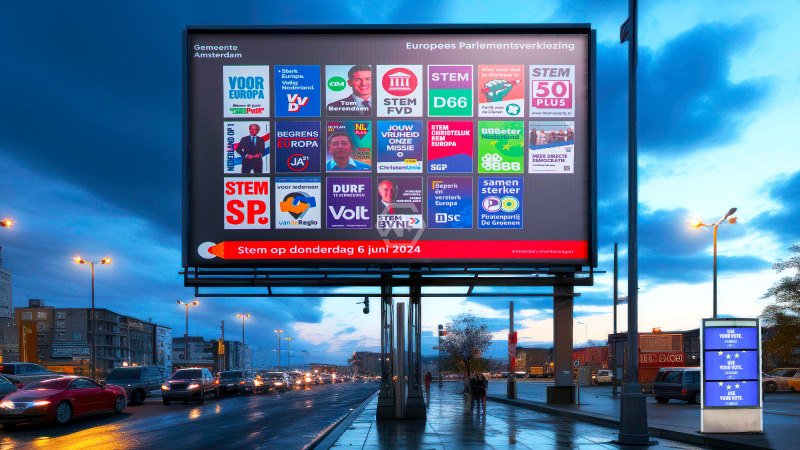- Dutch EU elections signal potential rise of far-right influence
- Wilders’ Party for Freedom aims for reform within the EU
- Outcome to shape European and global politics, from climate to geopolitics
The Netherlands braces for a seismic shift as far-right sentiments surge in the upcoming EU elections. With Geert Wilders’ Party for Freedom poised for success, the political landscape stands on the cusp of transformation, potentially reshaping the dynamics of European governance.
Meanwhile, amidst calls for reform within the EU, Wilders’ strategy diverges from past calls for Dutch exit, opting instead to advocate for change from within the bloc.
Dutch Europopulist Ascendancy
In the Netherlands, EU elections usher in a pivotal moment as populist tides rise, reshaping political horizons. Geert Wilders’ Party for Freedom emerges as a potent force, challenging established norms and potentially altering the European narrative.
As voting booths open, Wilders’ party signals a departure from traditional Euroscepticism, advocating for reform within the EU framework. This nuanced approach reflects shifting attitudes towards European integration among Dutch voters.
With populist sentiments gaining ground, the outcome of the elections reverberates beyond national borders, influencing the broader European landscape. The surge of far-right parties underscores a growing polarization within the EU political spectrum.
Amidst calls for change, the Netherlands stands at the crossroads of European politics, poised to leave an indelible mark on the continent’s trajectory. As ballots are cast and counted, the Dutch electorate holds the power to shape the future of European governance.
In the aftermath of the EU elections, the Dutch political landscape braces for transformation, echoing broader shifts across Europe. With the rise of populist sentiments and the surge of far-right parties, the outcome signals a pivotal moment in the continent’s political evolution, shaping the course of European integration and cooperation for years to come.
“In the Netherlands and across Europe, the surge of populist sentiments in the EU elections underscores the evolving dynamics of governance and the profound impact of grassroots movements on shaping the future of our continent.”



